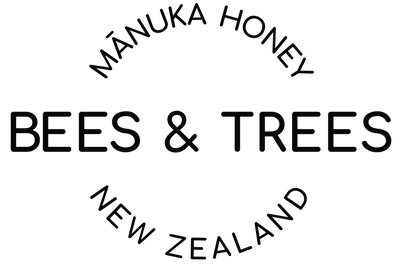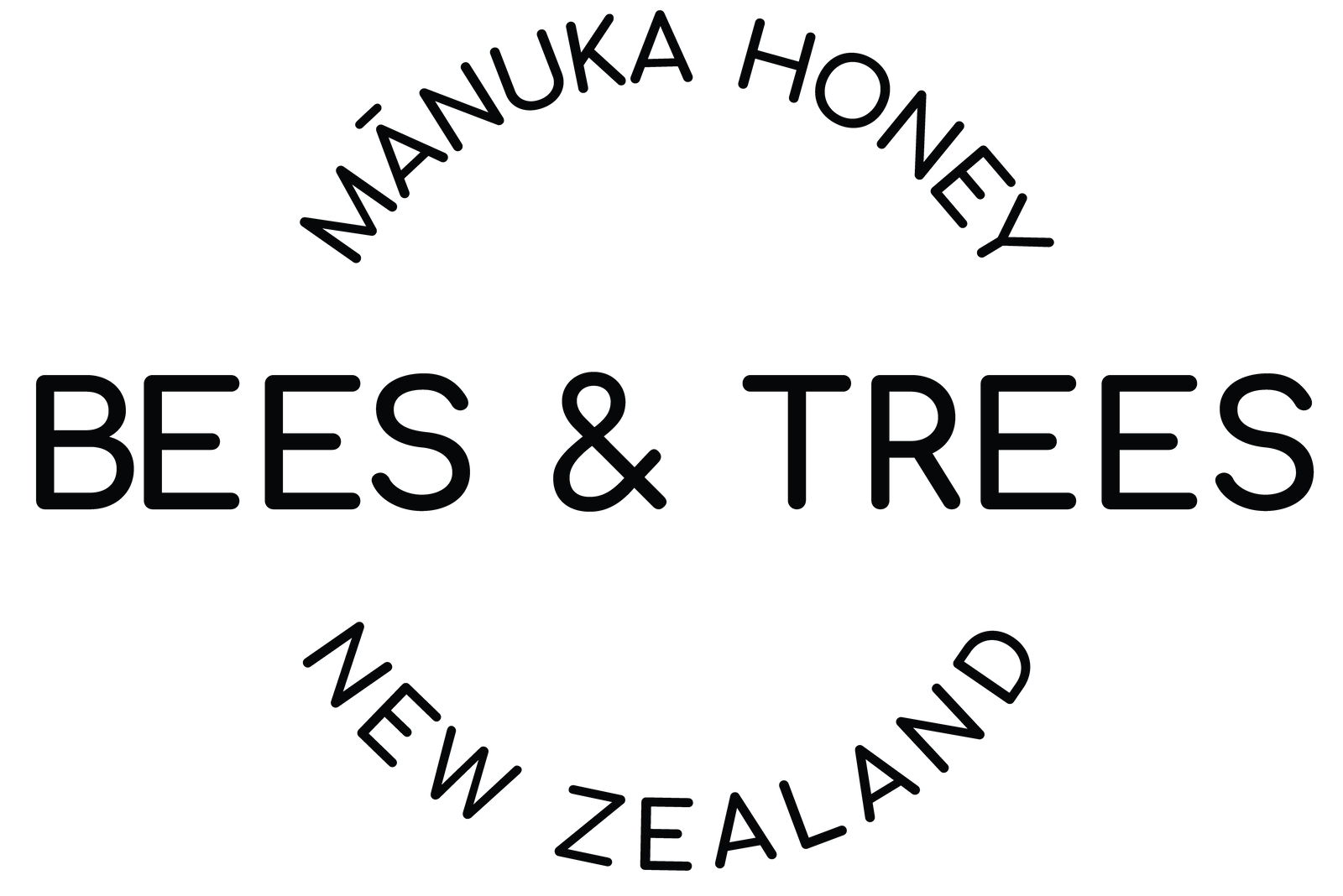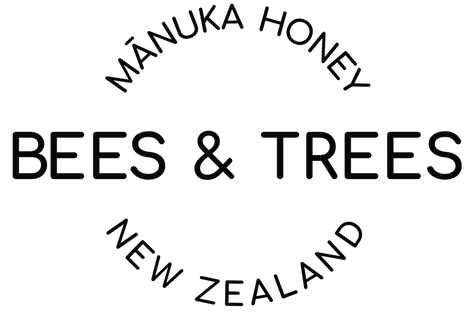As far back as 500 BC, honey was known as an aphrodisiac. The Greek physician Hippocrates, a prominent figure in the history of medicine, prescribed honey for sexual vigor and recommended consuming milk and honey to induce love and ecstasy.
In the Viking tradition, honey was considered a fertility booster. Newlyweds would drink honeyed wine, known as mead, daily during their first month of marriage to promote fertility and strengthen their marital bond.
In Indian weddings, honey is a special symbol of sweetness and love. The bride offers honey to the groom, signifying the sweetness they wish to bring into their married life. In Hindu culture, Kamadeva, the god of erotic love and desire, is often depicted with honey-soaked weapons, symbolizing honey's role in uniting hearts and fostering desire.
Eastern European traditions also celebrate honey's role in courtship and romance, with honeycakes being a popular gift in love rituals. In ancient Chinese wedding ceremonies, a goblet of honey and a goblet of wine are tied together with a red thread, and the bride and groom exchange sips to symbolize their union of love.
In the Old Testament, God describes the Promised Land as "a land flowing with milk and honey" (Exodus 3:8), signifying abundance and fertility. This biblical reference highlights honey's long-standing association with prosperity and reproductive health.
Now, let’s look at how honey, specifically Manuka honey, is being used to enhance sexual health today.
To grasp what makes Manuka honey an exceptional option, we’ll start by looking at where this remarkable honey comes from and what gives it its powerful properties.
Where Does Manuka Honey Come From?
Manuka honey is primarily produced in New Zealand, where the Manuka tree (Leptospermum scoparium) grows natively. This evergreen shrub thrives in the wild, untamed landscapes of these regions, providing the unique nectar that bees transform into Manuka honey.
The Maori people, indigenous to New Zealand, have long utilized the Manuka tree for its medicinal properties, leveraging its bark, leaves, and honey for various treatments.
Today, Manuka honey has become a sought-after product globally and is known for its potential to support overall health, including sexual wellness.
Understanding the unique composition of Manuka honey is key to appreciating its potential benefits for sexual health.
The Powerful Components of Manuka Honey

The health benefits of Manuka honey correlate with its unique composition. Some of the medically beneficial compounds found in manuka honey include:
1. Methylglyoxal (MGO)
MGO is formed when bees process Manuka nectar, which contains dihydroxyacetone (DHA). DHA is converted to MGO as the honey matures in the hive, and over time after it is extracted.
Methylglyoxal is found in varying concentrations in Manuka honey, and there is a direct correlation between the MGO and Manuka honey’s antibacterial properties. The higher the MGO, the stronger the honey’s effects.
2. Phenolic compounds
Manuka honey has the highest phenolic content compared to other kinds of honey. A 2019 study analyzed 40 honey samples from around the world and found that Manuka honey’s phenolic acid content measured 235.50 ± 16.01 µg/g.
One of the key phenolic compounds in Manuka honey is caffeic acid, which has been linked to enhanced testosterone levels. Research on male albino Wistar rats demonstrated that oral supplementation with caffeic acid significantly increased serum testosterone and luteinizing hormone levels. Additionally, caffeic acid phenethyl ester, another phenolic compound, was found to enhance serum testosterone levels in male rats with cadmium-induced reproductive toxicity.
By increasing testosterone levels, these phenolic compounds in Manuka honey can potentially improve libido, sexual arousal, and overall sexual performance.
3. Minerals
Manuka honey is packed with essential minerals such as magnesium, zinc, and iron, each playing a crucial role in supporting sexual health and overall well-being:
- Magnesium: magnesium is essential for the metabolism of nitric oxide, which helps in penile erection. Studies suggest that magnesium deficiency can contribute to erectile dysfunction (ED) in elderly patients with chronic kidney disease.
- Zinc: Zinc is critical for spermatogenesis and maintaining serum testosterone levels. Research shows that Zinc deficiency is linked to sperm abnormalities and lower testosterone levels, making it essential for male fertility. Additionally, a 2021 study indicates that an adequate supply of zinc is necessary for the maturation of oocytes in females, highlighting its importance in female reproductive health.
- Iron: Iron deficiency anemia (IDA) is associated with reduced sexual function and satisfaction in women. Studies indicate that women with IDA have significantly lower dimensions of sexual function compared to healthy women. Conversely, excess iron can negatively impact male reproductive health, leading to hypogonadotropic hypogonadism, infertility, and sexual dysfunction. Balancing iron levels is crucial for maintaining sexual health.
By incorporating Manuka honey into your diet, you can take advantage of these essential components, supporting overall health and enhancing sexual wellness.
Manuka Honey’s Impact on Sexual Health

Honey has had a rich association with sexual health and pleasure for centuries. The sexual benefits are still enjoyed today and are now backed up by research.
Here are some sexual benefits of Manuka honey that may shock you.
1. Treating erectile dysfunction (ED)
In Malay communities, a mixture of honey and egg is traditionally used as a natural remedy for ED. This practice highlights the long-standing belief in honey's ability to enhance male sexual health. Modern studies support these traditional uses, indicating that honey can indeed play a role in improving sexual function.
Unlike conventional ED medications, which can have varied side effects, Manuka honey offers a gentler approach with its rich nutritional profile and potent bioactive compounds.
One way Manuka honey helps treat ED is by improving blood flow. The honey's vasodilatory effect widens blood vessels and enhances circulation throughout the body, including the penile region. This improved blood flow can be attributed to a flavonoid found in Manuka honey called chrysin. A study revealed that chrysin utilizes multiple pathways to produce its vasorelaxant effect. Chrysin’s significant vasodilatory properties in vitro underscore its potential to improve erectile function by enhancing blood flow.
Additionally, Manuka honey's high content of vitamins and minerals, such as magnesium and zinc, supports overall sexual health. Magnesium is essential for the metabolism of nitric oxide, a molecule that helps induce and maintain erections by relaxing blood vessels in the penis. Studies suggest that magnesium deficiency can contribute to ED, and adequate intake can improve erectile function. Zinc is crucial for maintaining healthy testosterone levels, which are vital for libido and erectile performance.
Moreover, Manuka honey is linked to supporting ED, specifically in cigarette smokers. A 2012 study treated rats exposed to cigarette smoke (CS) with daily oral supplementation of honey at a dose of 1.2 g/kg. In contrast to the rats exposed only to CS, the rats fed with honey showed positive results in erectile function. These rats were better able to attain and maintain penile erection, consequently improving sexual behaviors.
2. Increasing testosterone
Testosterone is the primary sex hormone in males, playing a crucial role in regulating libido, sperm production, and overall sexual function. The brain and the pituitary gland control testosterone production, sending signals to the testes to produce the hormone. This regulation ensures that hormone levels are balanced, which is essential for maintaining healthy sexual function.
As men age, testosterone levels decline by about 1% to 2% each year, leading to reduced libido, decreased sexual performance, and erectile dysfunction. Maintaining healthy testosterone levels is critical for sexual well-being.
Studies have shown that honey, can improve testosterone levels due to its phenolic content. Research suggests that honey enhances testosterone by increasing luteinizing hormone production, improving Leydig cell viability, and reducing oxidative damage in these cells.
Another study found that male rats fed with Persian honey after ischemia-reperfusion-induced testis injury showed notable improvements in sperm counts and testosterone levels.
In addition, oral administration of honey has been found to enhance serum testosterone levels in males by inhibiting aromatase activity in the testes, preventing the conversion of testosterone to estrogen. This mechanism helps maintain higher testosterone levels, further supporting sexual health and performance.
It’s important to note that testosterone therapy is not only beneficial for men but also for women. Research from the Brazilian Society of Endocrinology and Metabolism suggests that testosterone therapy can improve sexual desire in women.
3. Improving vaginal health
Maintaining vaginal health is crucial for sexual wellness, and Manuka honey plays a significant role in this area due to its potent antibacterial and antifungal properties. These properties help combat common vaginal infections and promote a balanced vaginal microbiota.
One of the most common vaginal infections is yeast infections. Yeast infections are often caused by Candida species. Under normal conditions, Candida species are non-pathogenic commensal microorganisms, but they can cause infections when there is an imbalance. Manuka honey emerges as a potent antifungal agent in this context. Studies have shown that different concentrations of Manuka honey can effectively reduce the growth of Candida tropicalis in both planktonic and biofilm states. Specifically, Manuka honey demonstrated a higher efficacy in inhibiting Candida growth compared to other types of honey, making it a promising natural treatment for yeast infections.
Furthermore, another clinical study found that honey was an effective treatment for vulvovaginal candidiasis (VVC) infections, providing a natural supplement to conventional antifungal medications.
Bacterial vaginosis (BV) is another common infection that affects approximately 29% of women of reproductive age and results from an imbalance in the vaginal microbiota. It is characterized by reduced levels of lactic acid-producing lactobacilli and an overgrowth of pathogenic anaerobes. The multifactorial nature of BV’s pathogenesis complicates its treatment.
Manuka honey may offer potent support to antibiotics for BV. Manuka honey exerts broad-spectrum antimicrobial and anti-biofilm activity, promoting the restoration of vaginal microbiota by enhancing lactobacilli levels and decreasing pathogenic bacteria.
Additionally, the combination of its low pH, hydrogen peroxide production, and anti-inflammatory, antioxidant, and immunomodulatory activities helps create an optimal vaginal environment, reducing the risk of BV recurrence.
Beyond its infection-fighting properties, Manuka honey has shown promise in preventing uterine and vaginal atrophy and dryness in menopausal animal models. These benefits are significant for sexual wellness, as vaginal dryness and atrophy can lead to discomfort, pain during intercourse, and decreased sexual satisfaction.
4. Increasing sperm count and motility
Sperm count and motility are crucial factors in male fertility, and recent trends have shown a concerning decline. A review by Levine and his collaborators in 2022 highlighted that sperm counts fell on average by 1.2% per year from 1973 to 2018, dropping from 104 million/ml to 49 million/ml. Alarmingly, since 2000, the rate of decline has accelerated to more than 2.6% per year.
Evidence suggests that consuming honey, including Manuka honey, can help increase sperm count and motility. These improvements are essential for effective sperm movement, which is critical for fertilization. The bioactive compounds in honey, such as antioxidants and phenolic acids, contribute to these benefits by enhancing overall reproductive health.
One study found that the administration of 10% honey increased testosterone levels in male rats, which is closely linked to improved sperm production and quality.
Honey has also been linked to sperm mobility. In a study, the oral supplementation of 5% Palestinian honey for 20 days increased epididymal sperm count and testicular sorbitol dehydrogenase activity while reducing lactate dehydrogenase activity. Sorbitol dehydrogenase converts sorbitol into fructose, which is essential for producing ATP, the energy source required for normal sperm motility.
Cigarette smoking is a culprit of various abnormalities in male reproductive function, such as decreased sperm count and motility, increased abnormal sperm, and sperm DNA damage. A study investigated the protective effects of honey against cigarette smoke (CS)-induced testicular damage and oxidative stress in rats. The study exposed rats to CS and supplemented them with honey (1.2 g/kg daily) for 13 weeks. Results showed that CS exposure caused significant testicular damage, evidenced by smaller seminiferous tubules, lower Leydig cell counts, and increased germ cell loss. However, honey supplementation significantly mitigated these histological changes and oxidative stress levels, restoring antioxidant enzyme activities in the testis. These findings suggest that honey can protect against CS-induced damage and improve sperm count and motility.
The uniqueness of honey has also attracted interest in artificial insemination. Honey's viscosity increases as temperature decreases, entering a glass transition phase between -42°C and -51°C, preventing ice crystal formation. This property makes honey an effective natural cryoprotectant for semen during cryopreservation. A study on the post-thawed semen of Arab stallions found that honey improved sperm motility, viability, and membrane integrity, reducing cryopreservation injury.
5. Boosting Sexual Stamina and Energy
Manuka honey is beneficial not only for its medicinal properties but also as a natural source of energy that can enhance sexual stamina and vitality in both women and men. Its unique composition, rich in glucose and fructose, makes it a powerful energy booster.
Like other types of honey, manuka honey is a natural source of energy. It is primarily made up of sugars such as glucose and fructose, which play a crucial role in delivering both short-term and long-term energy. Glucose is rapidly absorbed into the bloodstream, providing an immediate energy boost. This quick absorption caters to short-term energy needs, making it ideal for moments when an instant pick-me-up is required.
Fructose, on the other hand, is absorbed more slowly into the bloodstream, offering a more sustained release of energy. This prolonged effect on sugar levels helps maintain energy without the sudden crash often associated with other sugary foods. As a result, consuming Manuka honey provides a sustained energy boost, enhancing stamina and endurance.
Conclusion

Looking to the future, incorporating Manuka honey into your daily life can significantly enhance both your health and sexual wellness. Its unique properties boost energy levels, improve blood flow, and support reproductive health, offering a natural way to enhance your overall well-being and sexual vitality.
When purchasing Manuka honey, ensuring you're getting a genuine product is crucial. All Manuka honey produced in New Zealand is rigorously tested to ensure it meets NZ government Manuka honey standards. Additionally, producers all test for Methylglyoxal (MGO) levels, which are measured in parts per million (ppm) or milligrams per kilogram (mg/kg). The higher the MGO concentration, the purer and more potent the Manuka honey is. We always recommend an MGO of 250+ or higher to get a wellness benefit. .
For more detailed guidance on selecting the best Manuka honey, check out our Ultimate Manuka Honey Buyer’s Guide.
Take a proactive step towards improved sexual wellness by trying Bees & Trees Manuka honey today.
References:
- Phenolic acids and flavonoids profiles of commercial honey from different floral sources and geographic sources https://www.tandfonline.com/doi/full/10.1080/10942912.2019.1579835
- Multidimensional Comparative Analysis of Bioactive Phenolic Compounds of Honeys of Various Origin - PMC https://www.ncbi.nlm.nih.gov/pmc/articles/PMC8065985/
- Mechanisms of honey on testosterone levels - PMC https://www.ncbi.nlm.nih.gov/pmc/articles/PMC6612531/#bib73
- The impact of hypomagnesemia on erectile dysfunction in elderly, non-diabetic, stage 3 and 4 chronic kidney disease patients: a prospective cross-sectional study. https://www.ncbi.nlm.nih.gov/pmc/articles/PMC5340248/#:~:text=Magnesium%20is%20essential%20for%20metabolism,elderly%20chronic%20kidney%20disease%20patients
- Zinc is an Essential Element for Male Fertility: A Review of Zn Roles in Men’s Health, Germination, Sperm Quality, and Fertilization https://www.ncbi.nlm.nih.gov/pmc/articles/PMC6010824/
- Role of zinc in female reproduction - PMC. https://www.ncbi.nlm.nih.gov/pmc/articles/PMC8599883/#:~:text=An%20adequate%20supply%20of%20zinc,and%20reduces%20the%20oocyte%20quality
- The relationship between iron deficiency anemia and sexual function and satisfaction among reproductive-aged Iranian women https://www.ncbi.nlm.nih.gov/pmc/articles/PMC6283628/
- Iron and a Man’s Reproductive Health: The Good, the Bad and the Ugly - PMC https://www.ncbi.nlm.nih.gov/pmc/articles/PMC6902410/
- Evaluation of vasodilatory effect and antihypertensive effect of chrysin through in vitro and sub-chronic in vivo study https://pubmed.ncbi.nlm.nih.gov/36469968/
- The impact of hypomagnesemia on erectile dysfunction in elderly, non-diabetic, stage 3 and 4 chronic kidney disease patients: a prospective cross-sectional study. https://www.ncbi.nlm.nih.gov/pmc/articles/PMC5340248/#:~:text=Magnesium%20is%20essential%20for%20metabolism,elderly%20chronic%20kidney%20disease%20patients
- Protective Roles of Honey in Reproductive Health: A Review - PMC https://www.ncbi.nlm.nih.gov/pmc/articles/PMC6612531/
- Honey improves spermatogenesis and hormone secretion in testicular ischaemia-reperfusion-induced injury in rats https://pubmed.ncbi.nlm.nih.gov/28370451/
- Mechanisms of honey on testosterone levels - ScienceDirect https://www.sciencedirect.com/science/article/pii/S2405844019356890
- Testosterone therapy for women with low sexual desire: a position statement from the Brazilian Society of Endocrinology and Metabolism https://www.ncbi.nlm.nih.gov/pmc/articles/PMC10522198/
- Protective Roles of Honey in Reproductive Health: A Review - PMC. https://www.ncbi.nlm.nih.gov/pmc/articles/PMC8197897/#:~:text=With%20respect%20to%20female%20reproductive,intake%20%5B18%2C19%5D
- Antioxidant Protective Effect of Honey in Cigarette Smoke-Induced Testicular Damage in Rats - PMC https://www.ncbi.nlm.nih.gov/pmc/articles/PMC3189729/
- Natural honey as a cryoprotectant to improve Arab stallion post-thawing sperm parameters https://www.sciencedirect.com/science/article/pii/S2305050016300343?via%3Dihub
- Fructose metabolism in humans – what isotopic tracer studies tell us - PMC https://www.ncbi.nlm.nih.gov/pmc/articles/PMC3533803/






